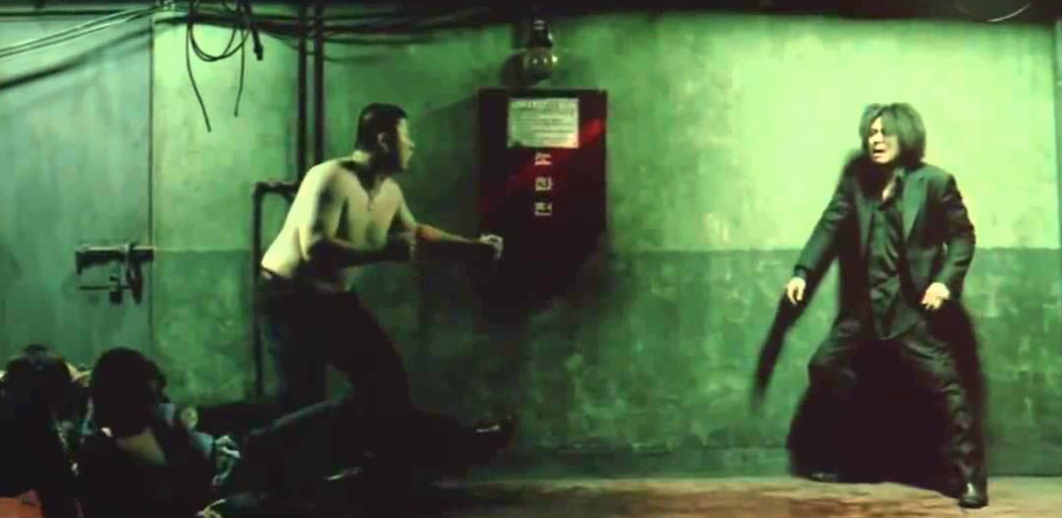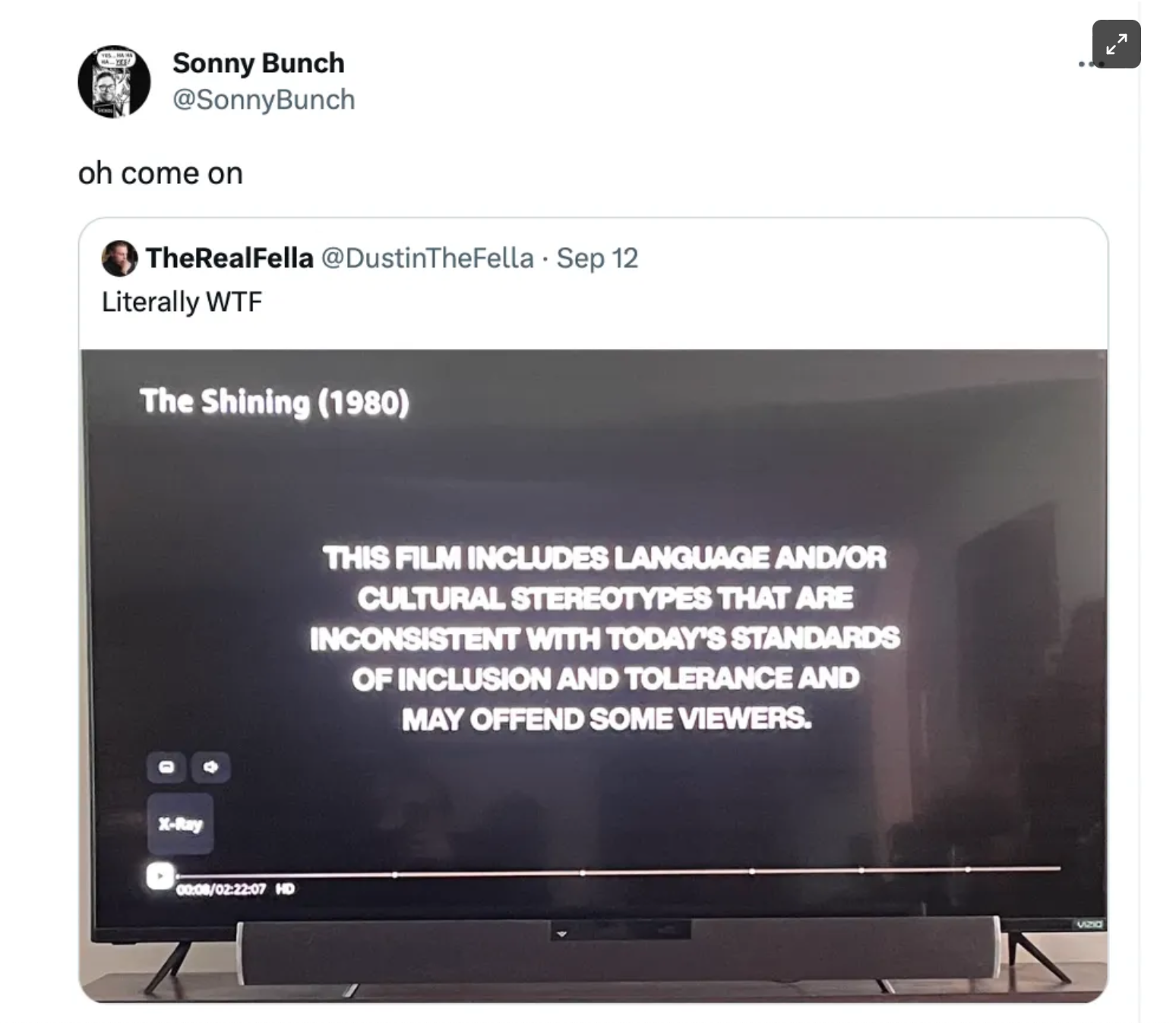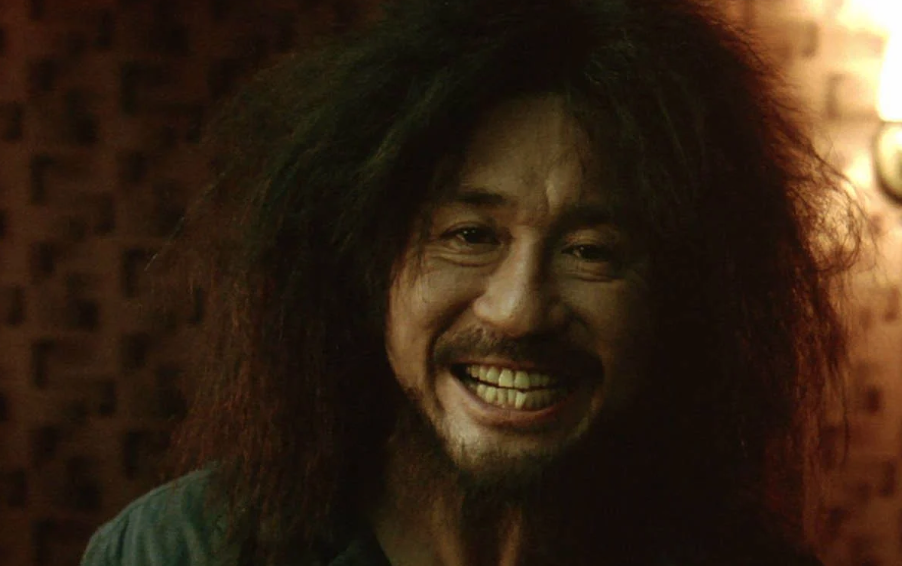I TRY TO GO TO MOVIES basking in complete ignorance. Unless I’ve seen the previews of coming attractions, I know nothing. I don’t look at reviews, I don’t Google, I avoid chatter on what I’m about to see. As much as possible, I like to come into a theater fresh, with no expectations. So when a friend convinced me to go to a late-night screening of a twentieth-anniversary rerelease of Oldboy (2003), I took her up on it solely because she has great taste in movies. I didn’t even know it was Korean. As we sat down in our plush, cushy movie seats, my friend said, “Buckle up, Zandy.”
Before the movie began, there was a special introduction by Park Chan-wook, the co-writer/director, to mark its anniversary. Park had this to say to the audience:
“I would like to give some advice to those who are watching Oldboy. First, there are scenes of extreme violence. Brace yourselves. The movie grapples with themes such as revenge, betrayal and sadness. There’s no avoiding any of this. Second, be prepared for extreme nudity, but not the kind of nudity you’d expect. Things are not always as they seem. There are many funny and ironic moments in this film. Don’t hesitate to laugh. If there are people who love octopi, this film may not be for you. Whether you have seen Oldboy before or if this is your first time watching it, I hope you all enjoy the film.”
How does Park Chan-wook’s prescreen trigger warning compare to this screenshot that The Bulwark’s Sonny Bunch posted on Twitter?
Well, the latter is asinine. It insults the audience’s intelligence and perhaps if you’re so easily perturbed, you should avoid horror movies altogether. It is perfunctory and pro forma, neither informing the audience of what’s to come nor preparing them for the context of what they’re about to see. This sort of infantilization feels like something a corporate drone dreamed up somewhere in the bowels of Amazon to make it look as though they’re proactively trying to avoid needless controversy on social media. Contrast that to Park’s caveat, which ultimately increased and deepened my appreciation for and admiration of Oldboy.
Because it was my first time seeing Oldboy and I knew nothing, I laughed at his warning, thinking this avuncular gentleman in his sixties with a kind, intelligent face was being satirical. “Extreme nudity”? “Octopi death”?? How random. Maybe this is a comedy? He told us to laugh, after all.
But when I witnessed a wild, unkempt, and desperate Oh Dae-su (Choi Min-sik) say to the angelic-looking sushi chef, Mi-do (Kang Hye-jeong), “I said I want to eat something alive,” and then proceed to devour a large, wriggling, very much living octopus, I realized, “Oh my god. The director was being literal!” Immediately afterwards, my perception of the movie shifted in a way that was shocking, even vertiginous. And amazingly, Oldboy continued to stun and disquiet, one-upping itself until the cataclysmic penultimate scene when Lee Woo-jin (Yoo Ji-tae) reveals Dae-su has unwittingly taken his own daughter as his lover, Dae-su then cuts off his own tongue, and, satiated in his vengeance, Woo-jin shoots himself in the head.
But something else that Park Chan-wook said was also true: Oldboy IS funny. When Oh Dae-su finds an extra chopstick with his daily prison rations, the one he uses as a tool to try to escape his fifteen-year confinement, he says, “All I could think about in that moment was the guy in the next room was eating with only one chopstick.” The ease with which the movie slid from humor to horror is unsettling, rolling beneath me like an earthquake. It is both playful and raw: about love and affection but also incest, retribution, and violence. A film about a flawed, unremarkable man who because of circumstances beyond his control transforms over fifteen years into a beast whose sole purpose is his epic quest of revenge. As I left the movie late at night, I wasn’t even sure I liked it. It was brutal and unforgiving, and it used the women in the film more as plot devices and symbols than as full-fledged human beings. But after I found my car in the nearly empty parking lot and drove home on deserted streets, I felt like I was in a different state than when I entered the theater.
It was very similar to what I felt after my first time seeing Mulholland Drive: suddenly everything around me seemed sinister. None of us was due a happy ending. A dark, mysterious force that controlled our collective destinies was lurking in the shadows. Both movies infected me, and the more I thought about them, the more they deepened and revealed their brilliance and audaciousness. I had a hard time sleeping. Underneath the brutality, there was a deceptive delicacy and a grace to both Park Chan-wook’s and David Lynch’s direction. These writer-directors have a similar deep understanding of humanity and our angelic and demonic sides: our lyricism and our ugliness, our curiosity and our brittleness, our strength and our fragility. And both men use humor in an off-kilter way to destabilize their audience and keep them on their toes. Their cameras thrive in the darkness.
In retrospect, I saw Park Chan-wook’s intro as less of a warning and more of a compassionate preparation for Oldboy. Rather than the movie being violent and prurient to shock (which I found Spike Lee’s 2013 remake to be), Park lets us know that the brutality is for a grander purpose: to dissociate the viewers from our normal lives outside the theater and take us to a heightened, more mythic and animalistic world. The extreme violence and the ultimate taboo of incest, along with the saturated, stylized cinematography, make the story biblical, so that it stands for something awesome: the savagery that lies underneath our manufactured, daily civility. How gossip—something we all do—can curse a man for life. As Oh Dea-su’s tormenter says, “Be it a rock or a grain of sand, in water they sink the same.” The ordinary can have extraordinary consequences. I’m glad Park Chan-wook primed me for his movie. After my initial bewilderment, I woke up the next morning remembering what he said and realized that it actually was an act of generosity and empathy. Things are not always as they seem.




